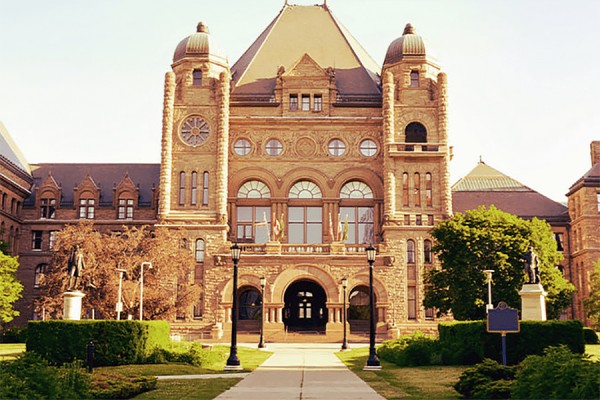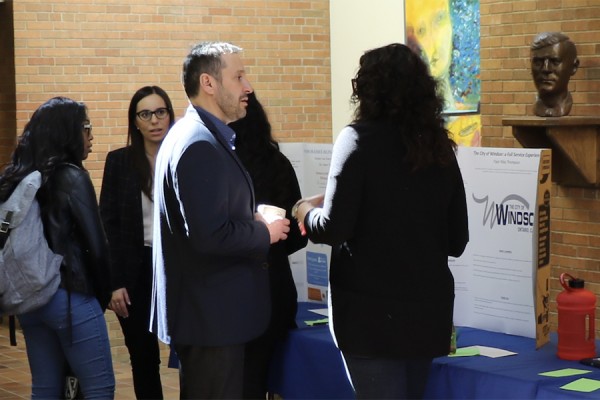 Jess Adamo and Cassie Major discuss their placement with the Therapeutic Learning Centre during a poster presentation April 11 in the CAW Student Centre.
Jess Adamo and Cassie Major discuss their placement with the Therapeutic Learning Centre during a poster presentation April 11 in the CAW Student Centre.
When disabilities studies student Cassie Major started her practicum placement at the beginning of the semester, little did she know it would lead to a full-time job in a field she loves.
Major started her new position last week with the Therapeutic Learning Centre, an education intervention clinic for children with autism. Her hiring came after spending two days a week for a total of 168 hours in a placement at the private service.
“It’s eye-opening to see how the children interact in that environment,” Major said. “The learning is different than in a typical classroom.”
Major and classmate Jess Adamo on April 11 presented posters documenting their placement experiences at the service. It was part of a display in the CAW Student Centre put on by students in disability studies and psychology.
Professor Mary Harper said the placements help the 19 students in her class make real-world connections to what they learn in the classroom.
“How do we deliver services to people with disabilities?” Harper said. “It’s all about letting people live the lives they want to live.”
Fourth-year students in psychology and disability studies are placed with organizations in the community during their final semester of school. Harper said it equates to thousands of volunteer hours for the organizations and invaluable experience for the students.
─ Sarah Sacheli



